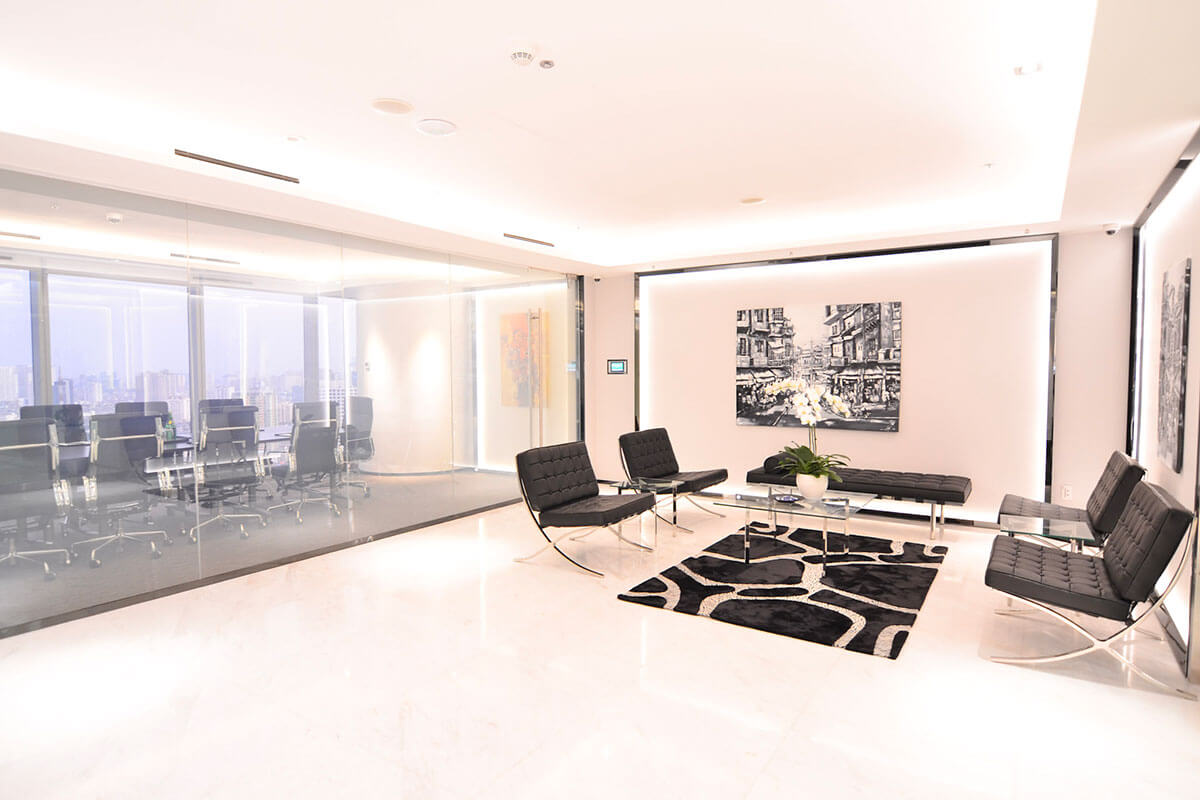At Your Service
Serviced offices are seeing resurgence as economic uncertainty and the government’s entrepreneurship drive push companies into temporary homes, says WALLACE CHU.
Serviced offices, sometimes referred to as business centers, have become increasingly popular over the last decade. In Singapore, serviced offices are recognized as representing innovative and cost-effective solutions for specific office needs.
With the prospect of war in the Middle East and the generally gloomy economic outlook, serviced office operators are enjoying an increase in interest while new entrants along with the expansion of existing operators have initiated a resurgence of the sector, which will help the long-term growth of this market.
A serviced office can generally be defined as a fully furnished, staffed and equipped commercial accommodation, to cost of which includes occupancy of the space, all utilities, cleaning and maintenance. Other services are provided and are either included in the lump sum rent or paid for independently. The space provided can be occupied for periods shorter than conventional lease, in some cases for as little as one hour.
More flexible
With the volatile market conditions and challenging economic times, serviced offices stand to benefit, as many tenants are not willing to commit to long-term leases. In times of such uncertainty, most start-ups do not want to tie themselves down in conventional offices with longer fixed leases (usually three years), which are less flexible and require expensive fit-out costs for furniture and IT.
The major clientele for serviced offices includes start-up, foreign representative offices, consultancy firms, and companies which need temporary office space due to office expansion or renovation. With emerging “virtual office” services, more companies than ever stand to benefit from the serviced office approach.
In Singapore, There are more than 20 serviced office operators occupying about 210,000 sq ft, or about 2 per cent of total Grade A office space. The market players in the serviced office sector can be grouped into 2 tiers.
The first tier comprises global operators such as Regus, CEO SUITE and Servcorp. The second tier includes local operators who have tended to concentrate on offering more affordable alternatives.
Occupancy rates have improved from about 70 per cent in March to around 75 per cent currently and one reason for this is the government’s drive towards entrepreneurship, resulting in more inquiries from start-up companies.
Many such companies begin with the virtual office option, which provides them with the use of a prestigious address as their own registered office and correspondence address, a private telephone line with calls professionally handled and answer in the client’s name, as well as a certain number of hours of complimentary usage of meeting or conference space.
Eventually, such companies, if successful, may end up taking standard office space. Canny landlords have been known to use serviced offices to “grow” tenants for their main portfolios, having incubated them in serviced space first.
Half of inquiries for serviced space come from local start-ups with the other half from multinationals. The increase in local inquiries is partly due to the increased awareness of this new product. Local firms tend to be more price-conscious whereas MNCs are more concerned about branding and quality. When larger anchor tenants are looking to expand temporarily or renovate space, they often prefer to operate within the same building, benefiting nearby serviced offices.
Rent for a 100 to 120 sq ft serviced office suite stand at $1,200 to $1,500 per month, down from $2,500 to 3,000 at the peak in 1998. Creative packages from tenant are also being offered by the operators to attract users while on conference rooms are being leased to outside clients for seminars, conferences and workshops.
Currently, more tenants are looking at longer terms of about one year compared with six months previously. This is due to the much better pricing offered for longer leases. New companies, especially start-ups that require time to set up, usually settle for longer leases in order to enjoy better pricing. Renewal tenants also seek longer terms of renewal of one year to lock in cheaper rents, but tenants are rarely offer leases of more than one year in order to maintain space and pricing flexibility.
Apr 26, 2013




 English
English
 Bahasa
Bahasa
 日本語
日本語
 한국어
한국어
 ไทย
ไทย
 tiếng Việt
tiếng Việt





